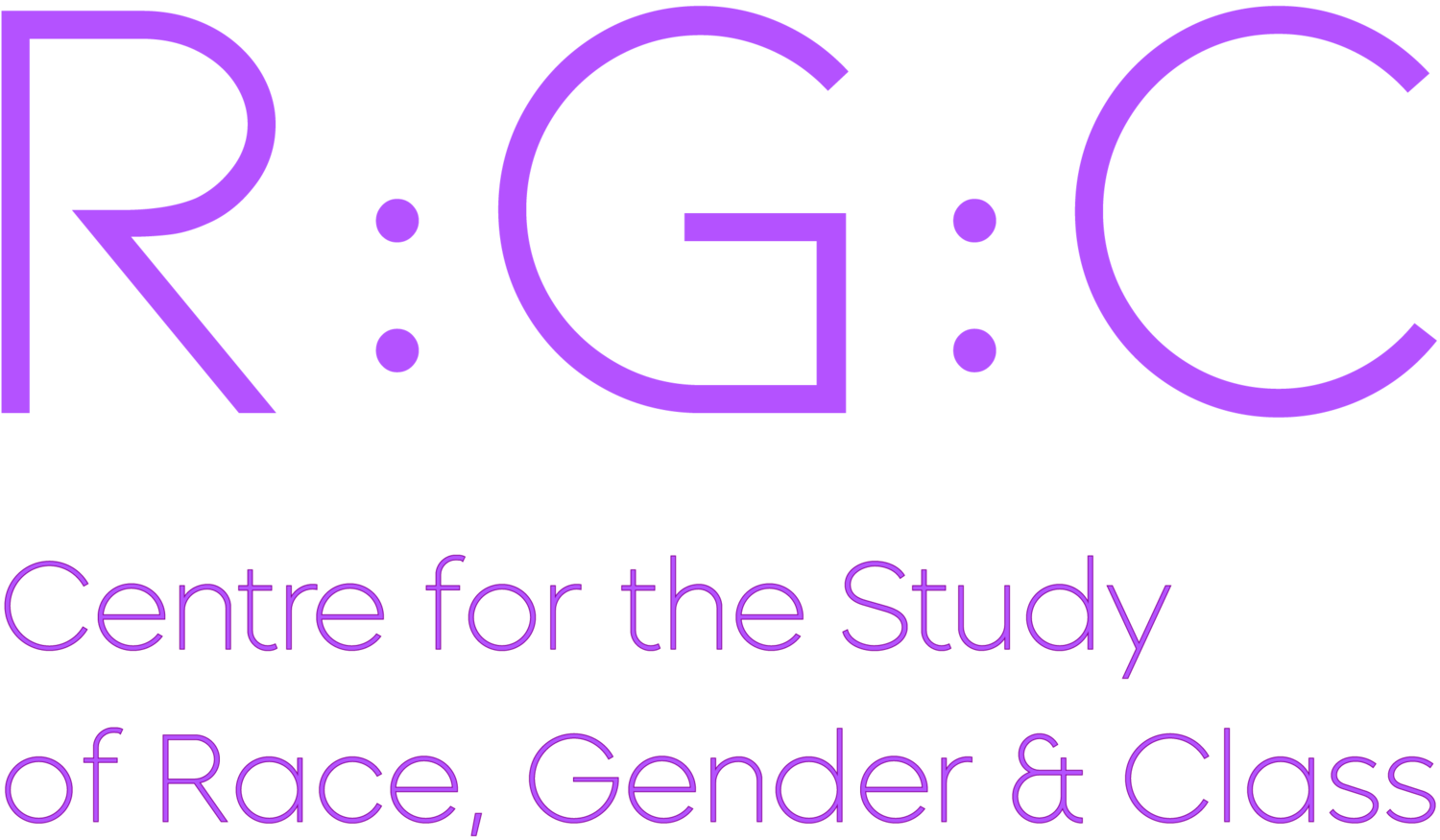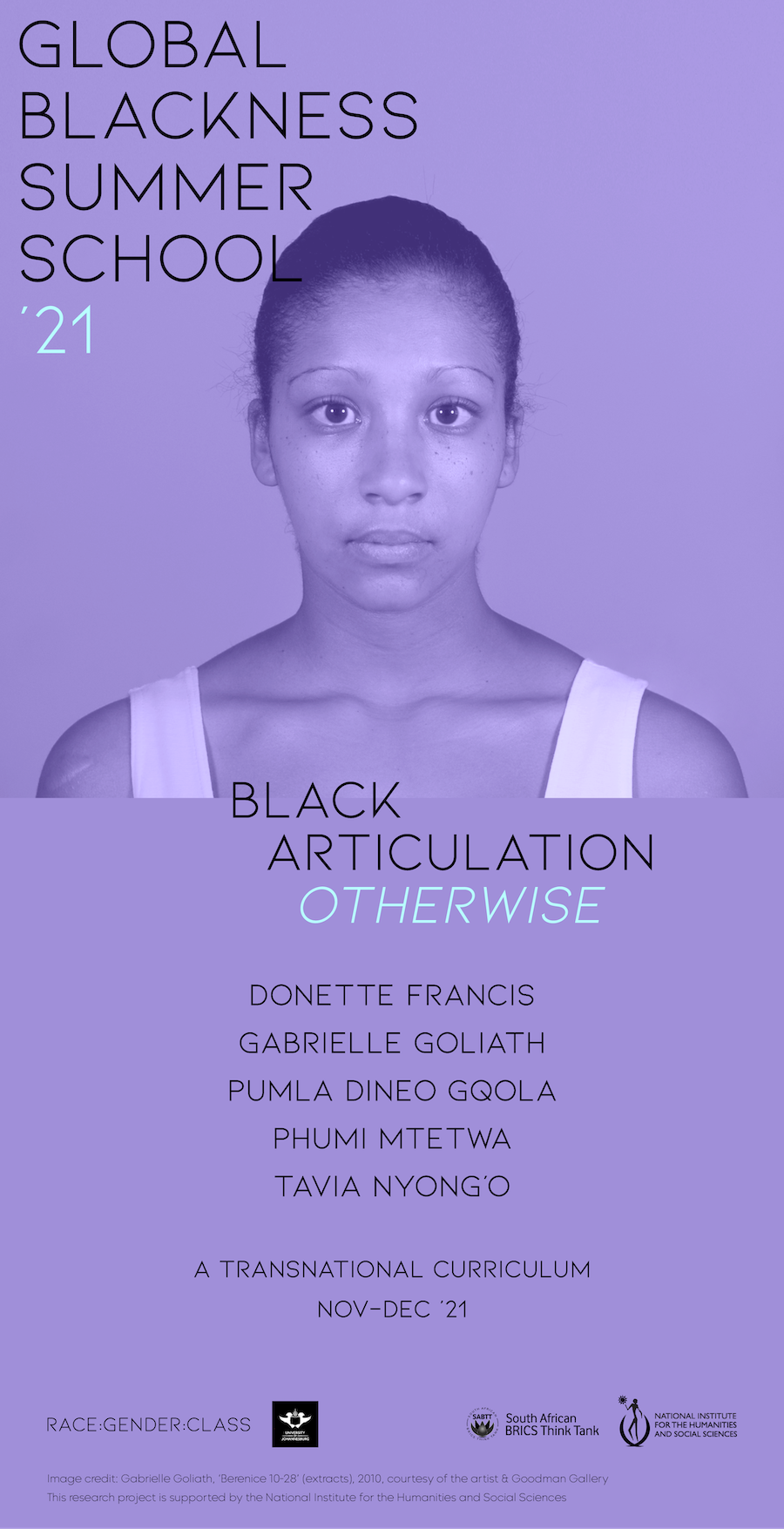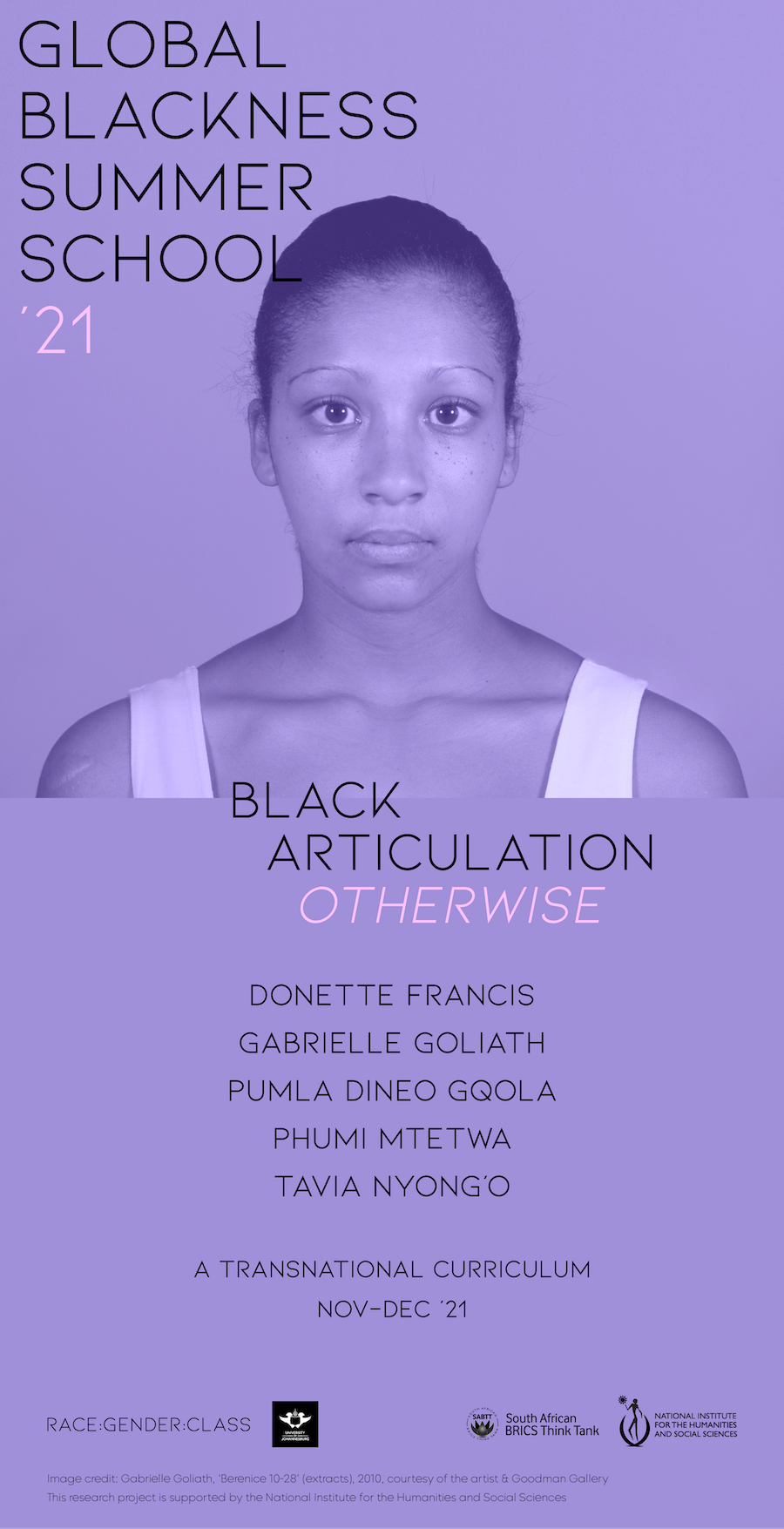Global Blackness Summer School ‘21
Nov/Dec 2021
Race:Gender:Class is thrilled to announce the launch of its Global Blackness Summer School, which will run annually as a three-week November/December programme. We use the term “global Blackness” to signal our interest in exploring the multiplicity of Black experiences, intellectual traditions and perspectives as well as modes of Black theory and practice. We ask: What are the geographies, theories and practices of Blackness with which we work? How is Blackness instantiated in different spacetimes?
Black Articulation Otherwise
The sessions for each year’s Summer School will cluster around a key concern or area, drawing together an engaged community of scholars, activists, artists and everyday folks who seek to mediate on Blackness as a global category of identification, and its local iterations across different times and geopolitical locations.
The open framework for our 2021 Global Blackness Summer School is ’Black Articulation Otherwise’. Running from mid-November to early December, the programme will include a series of seminars, screenings, listenings, workshops and an exhibition - guided by our exceptional group of invited thinkers, practitioners and activists: Donette Francis, Gabrielle Goliath, Pumla Gqola and Tavia Nyong’o. Through this online and hybrid programme, we hope to cultivate a productive space for community, care and imagination. Join us as we seek to collectively refuse the ‘transparency’ of heteropatriarchal whiteness (and its attendant conditions of enclosure, illegibility and death), and look to the otherwise possibilities opened through speculative Black, queer and feminist aesthetic practices.
Session 1, with Tavia Nyong’o
Imagine There’s No World: Queer Transections of Afrofuturism and Critical Fabulation
Tavia Nyongo’s session(s) will investigate Black possibilities for critical fabulation in the shadow of the Sankofa bird. How are African diasporic subjects entangled with continental histories and futurities through “broken claims to connection” (Fred Moten)? What intervention can feminist, queer, and trans aesthetics make into this discourse?
Mon 15 Nov ‘21 / 18:00 SAST : small group workshop
Wed 17 Nov ‘21 / 18:00 SAST : open webinar (Register)
Click below session information, resources and links
Session 2, with Donette Francis
Creole Miami: Quotidian Entanglements of the Americas
Donette Francis’ session(s) works from the site of contemporary Miami, asking us to consider the implications and local (and transnational) resonances of what she calls “hemispheric creole whiteness”. Because local histories of place matter to the complexities of racial formation, she uses geography to shift the terms of the current debate around immigration and new racial formations in the United States. She asks: what happens when we centre a space like Miami, where migrations from the Americas fundamentally disrupt US models, transplanting their own hemispheric practices of white supremacy and anti-blackness to restructure operations of place and power?
Mon 22 Nov ‘21 / 18:00 SAST : small group workshop
Wed 24 Nov ‘21 / 18:00 SAST : open webinar (Register)
Click below session information, resources and links
Session 3, with Gabrielle Goliath & Pumla Dineo Gqola
‘Wet Eyes’: As If Blackgirl Freedom Has Come
What is the texture of Black Feminist friendship? Friendship here as radical political, intellectual and psychic intimacy/sisterhood - against and beyond patriarchal spacetime.
For some years now, Pumla Dineo Gqola and Gabrielle Goliath’s respective practices have shaped each other’s thinking and work. There has been an enmeshing, an imbricating, like whispers that guide their minds and bodies as they create in word, in image, in sound. In her contribution to ‘Surfacing: On Being Black and Feminist in South Africa’, Pumla Dineo Gqola writes of the “wet eyes” that Gabrielle Goliath’s 2019 This Song Is For… gave rise to in many of the Blackgirls/Blackwomen who experienced that exhibition, creating a place of mourning for the “walking wounded” and … freedom.
‘Wet Eyes’: As If Blackgirl Freedom Has Come is a multimodal encounter with two thinkers and creators whose collective work speaks to the ways in which Blackgirls/Blackwomen, Blackqueer folk, Blackgendernonbinary folk disrupt patriarchal modes of creative and intellectual practice to reimagine the world in which freedom is present, not to-come, but rendered in the here and now. Presented alongside Gabrielle Goliath’s latest exhibition, Chorus, this hybrid webinar extends the radical practice her work instantiates, of mourning Black lives lost to patriarchy.
Thurs 9 Dec ‘21 / 18:00 SAST : hybrid gathering (Register)
In-person workshop : due to the present escalation in Covid-19 cases, this session has been deferred to early 2022 (details forthcoming)
Click below session information, resources and links



